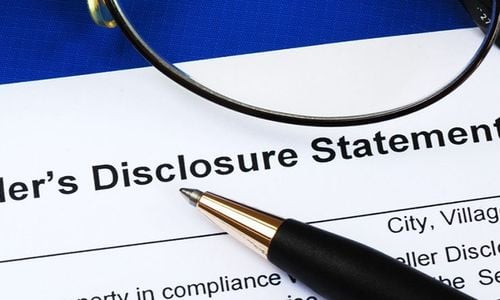In Texas, as in many other states, single-unit residential property sellers are required to fill out a Seller’s Disclosure Notice when they list their home for sale. There are two forms that can be used; one is from the Texas Real Estate Commission (TREC) and the other is from the Texas Association of Realtors (TAR). The Pamela Walters Group uses the latter, as do many other brokerages. One advantage of the TAR form is that it gives the web address for searching the Texas Department of Public Safety database for registered sexual offenders by zip code. It’s also a little bit more detailed and easier to read.
The Seller’s Disclosure is a checklist of conditions that the seller knows about that may affect the health of the buyer as well as the value of the property. These are problems the seller is aware of, so it isn’t necessary to hire a property inspector to complete this form. For example, if the seller is aware that the furnace doesn’t work, disclosing this would be required. Some states require disclosing whether a death ever occurred in the home, but Texas isn’t one of them – however, one of the more unusual items a seller must disclose in Texas is whether the home has previously been used to manufacture methamphetamine.
The Seller’s Disclosure form mainly focuses on the following 6 areas:
- Lead Paint
- Asbestos
- Environmental Hazards
- Natural Hazards
- Boundary Line Disputes
- Structural and Mechanical Issues
Benefits for the Buyer
The Seller’s Disclosure can reveal things the buyer might not have even known to ask about, such as types of wiring and plumbing problems. Anything that helps a buyer know more about the condition of the biggest purchase they will ever make in their lifetime is a very good thing!
How it Helps the Seller
The notice gives sellers a chance to document what they know about their property, which can reduce the likelihood of a lawsuit. After closing on the property, if a buyer claims they didn’t know about a previous problem, the seller can refer them to Section 3 of the notice where they acknowledged the problem, thus negating the buyer’s claim.
Your Listing Agent will be able to answer any specific questions you may have. The best advice, though, is to just disclose everything you know about your property in order to protect yourself after your home closes.

